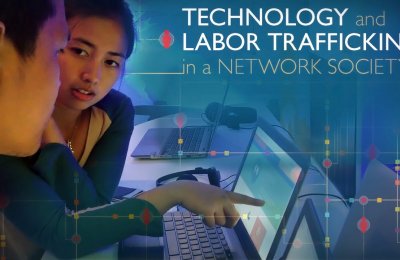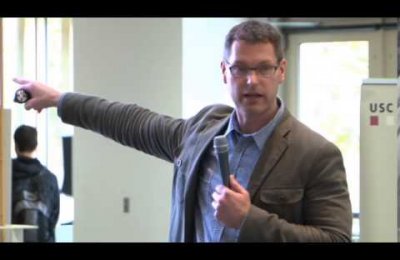Nine USC Annenberg faculty or staff members presented or participated in USC’s 2013 Provost/Academic Senate Retreat about technology and learning.
“We are facing dramatic changes in the way our student population communicates, learns and interacts with their peers,” said communication professor Patricia Riley, president of the Academic Senate, who presided over the retreat. “Their technological competence far surpasses many of their professors.”
This year’s event, titled “How Technology Transforms Learning: USC’s Present and Future,” examined how technology has and will continue to transform learning at USC, both in the classroom and through online learning programs.
Speakers shared their technology-enhanced learning breakthroughs — large and small — with colleagues to inspire others to follow their example in changing how USC professors teach and students learn.
University Professor Manuel Castells – introduced by Riley -- delivered the keynote presentation titled “The University: From Theology to Technology.”
Castells spoke passionately about the need for global outreach. Open-access lectures, such as massive open online courses, are primarily valuable in spreading a university’s brand in an era of global competition, Castells said.
Other members of the USC Annenberg family presenting or involved in the retreat included Director of Distance Learning Neil Teixera (presentation: Supporting Online Programs), communication professors François Bar, Thomas Hollihan, Alison Trope and Rebecca Weintraub, Associate Dean Abigail Kaun, and Senior Editor for Print and Online Communications Jackson DeMos, also a student in the online Master of Arts in Teaching program at USC Rossier.
DeMos said the interactive nature of his program — with an interface that includes interactive chat boxes and a Brady Bunch-like grid of live video feeds — defies the outdated stereotypes many have of online education.
“There’s a stigma about online education — that it’s like online traffic school you do when you get a speeding ticket,” DeMos said, explaining that the MAT@USC is nothing like that.
The retreat concluded with breakout discussions in which faculty brainstormed ways in which USC could publicly showcase innovative online faculty, signature academic programs and research initiatives.








